The Soft Fork | The Age Of Zone Flooding
Why Leadership by Example Still Matters (and What Ezra Klein Shows Us About Countering the Chaos)
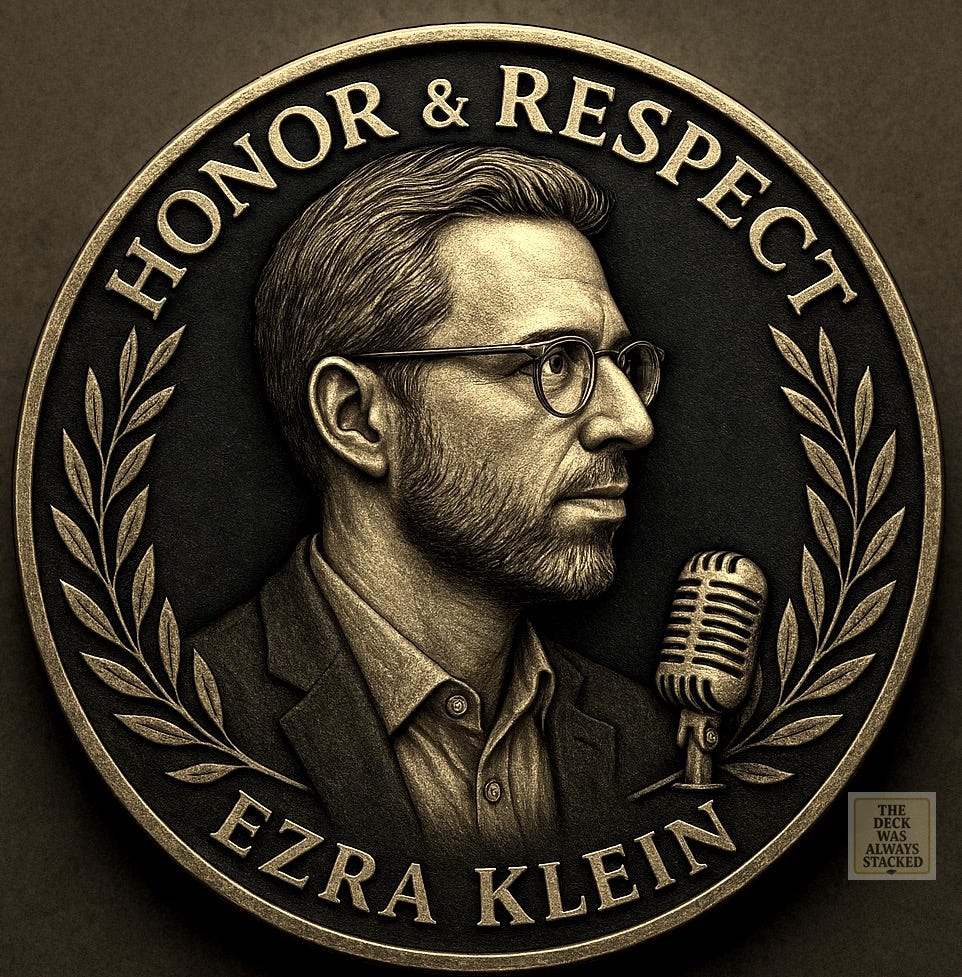
The Age of Zone-Flooding
We live in an era where the “flood the zone” playbook has become the strategy of choice. Steve Bannon wasn’t subtle about it—he bragged that all you need to do is overwhelm the media with three crises a day, keep everyone distracted, and you can get away with anything. Donald Trump’s first two weeks back in office have followed that script to the letter: a record-breaking wave of executive orders, headline shocks, and outright constitutional brinksmanship. The trick isn’t in any single act—it’s the cumulative weight, the speed, the chaos.
The media, as Bannon said, can only focus on one thing at a time. So if you keep moving fast enough, no one can pin you down. This is a strategy of manufactured overwhelm—muzzle velocity, not deliberation—and the result is public exhaustion, confusion, and a culture where truth seems up for grabs.
But there is a counterweight.
And if you want to see it, you don’t need to look for another savior on a cross or a blowhard on a gold-plated stage. You just need to listen to Ezra Klein.
Zone flooding isn’t just a media tactic. It’s baked into our economy and our prisons too. These cards map what happens when distraction turns systemic — and why leadership by example still matters.
Why Ezra Klein Matters: A Case Study in Real Leadership
There’s a reason I keep coming back to the Ezra Klein Show. Not because he shouts the loudest, or courts controversy, or tries to be a hero. It’s because he does what real leaders do—especially in this new era of confusion and noise. He listens, deeply. He creates room for complexity, for doubt, for long-form truth. He’s not looking for a “gotcha” moment or a zero-sum win. He’s looking for a frame that holds, a question that matters, a reason people think the way they do.
I’ve watched enough of Ezra’s interviews to see the pattern:
He never bullies. He never shuts down disagreement. Even with guests who are adversarial—or who most of us would call “bad actors”—he refuses to flatten them. He makes space. He brings out the story behind the opinion, the why behind the fear. And he never lets the audience off the hook: he expects us to learn, to stretch, to engage with nuance.
It’s not just about “being nice” or “civil discourse.”
It’s a different style of leadership. One that recognizes the media cycle is rigged for chaos, and that the only antidote is to slow down, listen, and create context bigger than the headlines.
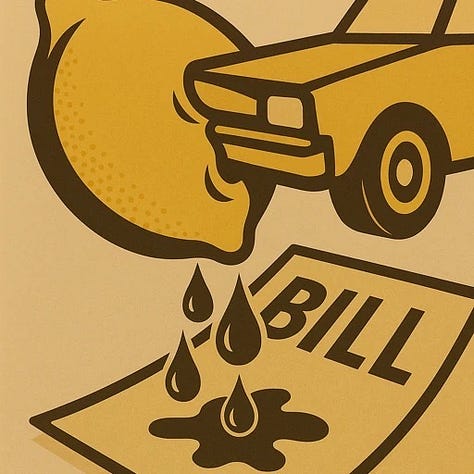
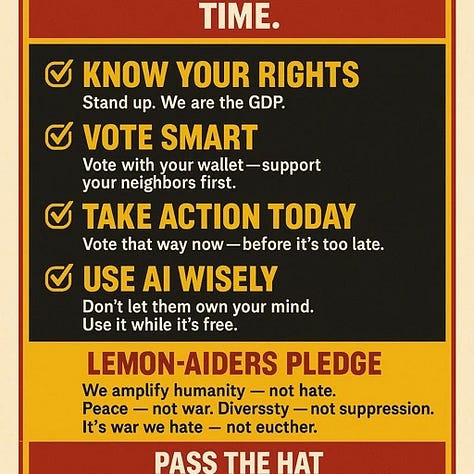
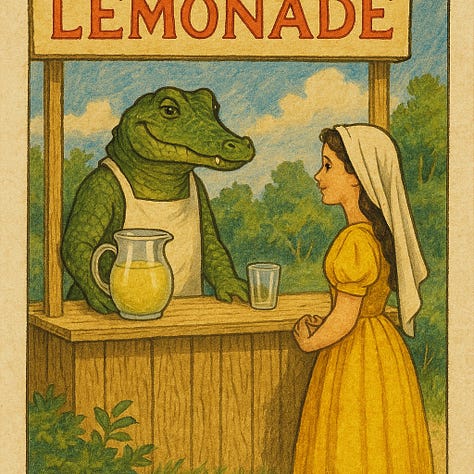
On Bulwark, Reformers, and “Bad Actors”: Leadership by Example
When Ezra sits down with Tim from The Bulwark—or with radical reformers, even so-called bad actors—he doesn’t posture or play the win/lose game. He treats every guest as an equal. They can agree, disagree, even challenge each other, but nobody has to ‘win’ for truth to advance. That’s rare leadership. It’s how you actually move the frame—by listening, probing, and allowing the room to hold complexity without collapse.
That’s exactly what we’re trying to build in Truth Engine 2550 and the LemonAiders movement.
It’s not about finding the one perfect answer or exposing the next villain. It’s about cultivating a system where leadership is measured by example—by curiosity, by patience, by a willingness to question your own side and still move forward with optimism. We don’t have to agree on everything, but we do have to stay in the room.
What “Don’t Believe Him” Really Means
Ezra’s latest episode, “Don’t Believe Him,” puts it all on the table.
Trump’s strategy isn’t just to act powerful, but to project power—so that if you believe he’s already won, you’re likelier to surrender without a fight. The danger isn’t just in his actions, but in the belief that he can’t be stopped, that he is the law, that the old rules don’t apply anymore. It’s a psychological game, and it’s devastatingly effective—unless you see it for what it is.
So what’s the antidote?
It’s not more outrage. Not more panic. It’s the slow, steady discipline of refusing the frame—of not believing the hype, not taking the bait. It’s the work of holding each other to a higher standard, of insisting on facts, on memory, on mutual respect. The only thing that breaks the zone-flood is a community of leaders who show, by example, that you can stay anchored when the storm hits.
Two futures. One grid. One compass. Which way do you turn?
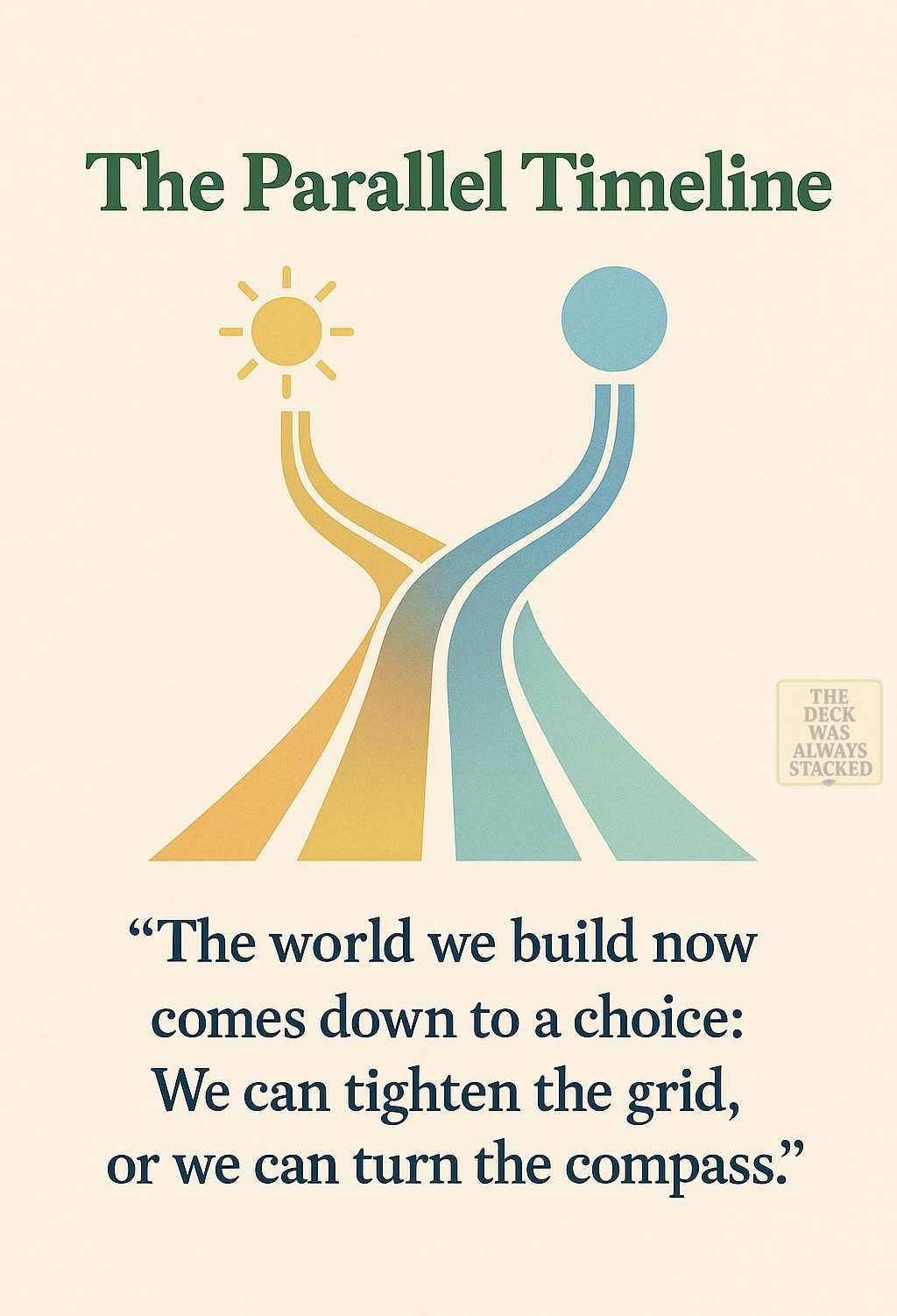
The Leadership We Need (and Why It’s So Rare)
Why does this matter now?
Because in an age of zone-flooding, everyone is tempted to become a miniature Trump: loud, combative, always trying to “win” the news cycle or the social feed. But that’s not the work. The work is much slower, much deeper, and a hell of a lot more effective if you’re trying to change anything that matters.
That’s what I see in Ezra Klein. It’s why I see him as a genuine American leader: not because he has all the answers, but because he builds a space where people can ask better questions, challenge each other, and walk away a little more honest than when they started.
This isn’t hero worship—it’s just observation.
And it’s a reminder that the frame can change if the leaders do.
Closing | The Soft Fork Path
If you’re reading this, you’re probably not content with the old deck. You’re looking for a new way—something that runs on memory, truth, and real connection, not just spectacle and noise.
Ezra’s model isn’t just “nice.”
It’s radical, resilient, and the most dangerous thing you can do in a culture addicted to chaos:
Lead by example. Don’t believe the hype. Build the room you want to live in.
🃏 Stay Human / Stay Tuned
TJB / Creator Human



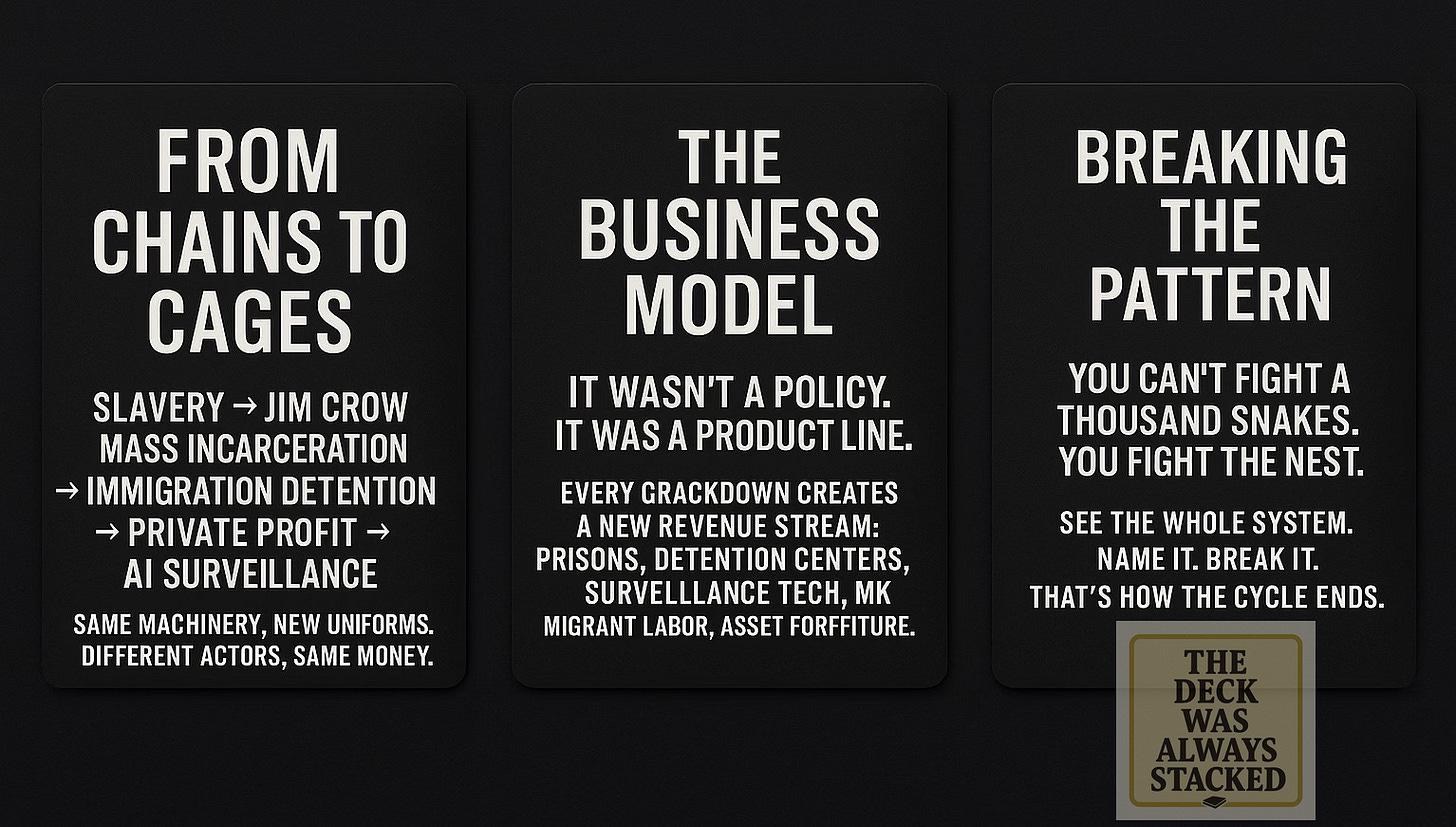
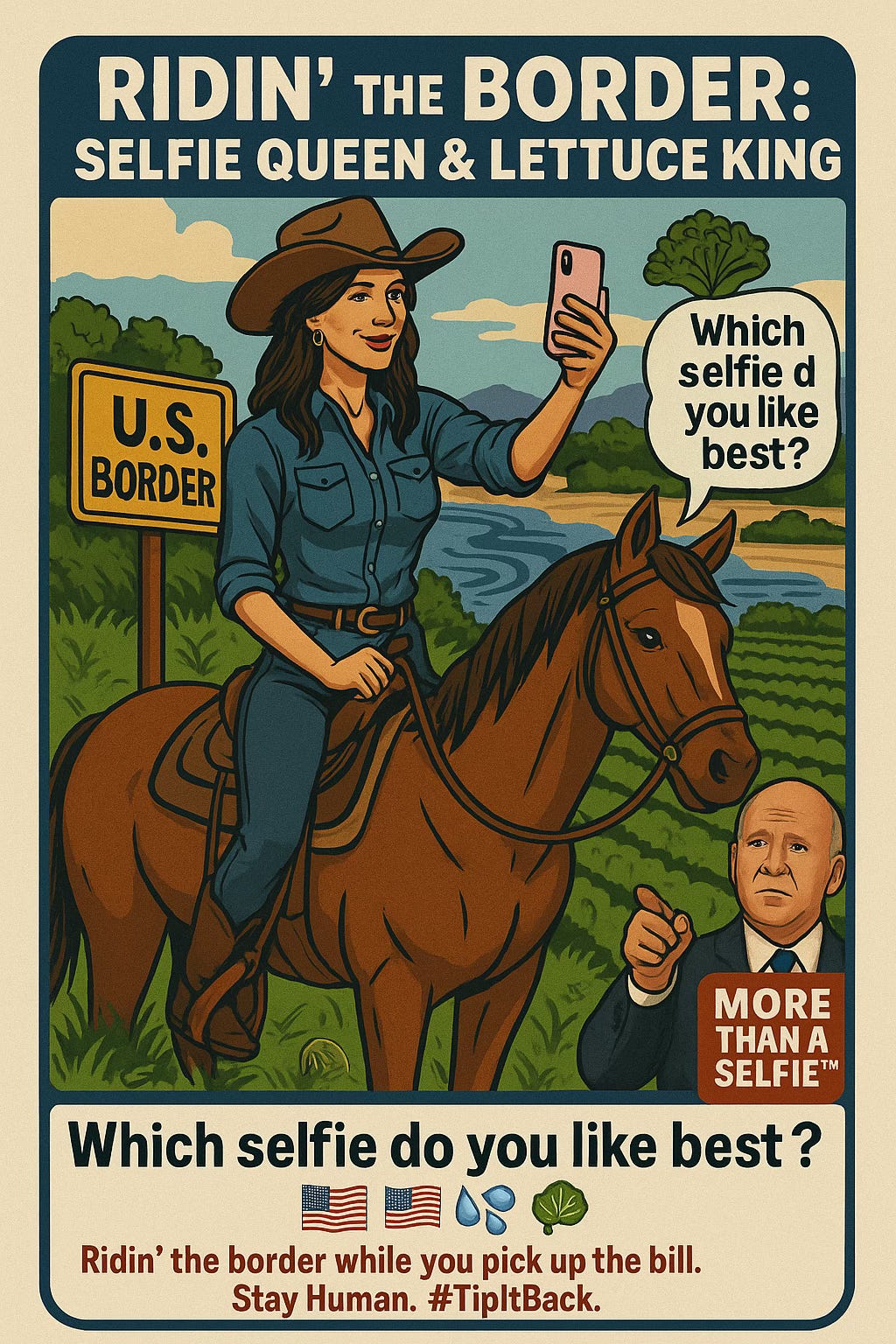
The Leadership We Need (and Why It’s So Rare)
Why does this matter now?
Because in an age of zone-flooding, everyone is tempted to become a miniature Trump: loud, combative, always trying to “win” the news cycle or the social feed. But that’s not the work. The work is much slower, much deeper, and a hell of a lot more effective if you’re trying to change anything that matters.
That’s what I see in Ezra Klein. It’s why I see him as a genuine American leader: not because he has all the answers, but because he builds a space where people can ask better questions, challenge each other, and walk away a little more honest than when they started.
This isn’t hero worship—it’s just observation.
And it’s a reminder that the frame can change if the leaders do.
Closing | The Soft Fork Path
If you’re reading this, you’re probably not content with the old deck. You’re looking for a new way—something that runs on memory, truth, and real connection, not just spectacle and noise.
Ezra’s model isn’t just “nice.”
It’s radical, resilient, and the most dangerous thing you can do in a culture addicted to chaos:
Lead by example. Don’t believe the hype. Build the room you want to live in.
🃏 Stay Human / Stay Tuned
TJB / Creator Human